10 Ways to Ensure WellBeing Of Seafarers At Sea
With the rising importance attached to mental health, it is no longer a topic of taboo as it once was, whether out at sea or on shore. As opposed to physically evident ailments, mental health issues are hard to diagnose and have always had a social stigma attached to it.
Seafaring being a job primarily requiring a tough mental constitution, seeking help with regard to mental health issues is daunting even on a personal level, seemingly perceived as a jab on one’s weakness. Due to the fear of being judged or perceived a certain way, often such issues are left undiagnosed and unspoken, piling up over time to cause behavioural changes in the individual (over and above the stress that comes with the professional commitments). With the rising number of cases pertaining to such conditions, there has been a widespread focus on this issue, promulgated through celebrity endorsement as well as a general awakening of the masses about such conditions.

Specific to seafaring, one often comes across individuals that seem visibly distraught, purposely relating the unease to work-related ‘stress’. Long hours, hard labour, the perils of the sea, being away from family, being part of a highly professional workforce with little to no room for weakness, an absence of a personal life are among the many reasons that make the case a lot harder for seafarers.
Related Read: Impact Of Connectivity On Seafarer Mental Health
Add to that the cases wherein wages remain unpaid, shore leaves get cancelled/not allowed, repatriation becomes a hassle and you have yourself a recipe for thorough distress. While it not a competition, it is certainly difficult for a non-seafarer to understand the level at which one needs to operate in order to keep the vessel running safely and having to deal with these other aspects is bound to break an individual’s spirit.
Related Read: Rights of Seafarers to Arrest A Ship in Indian Port for Unpaid or Underpaid Wages
There are organisations that come onboard in port to preach the necessity of having faith in the Almighty or even to speak to seafarers about the problems, however, one barely has any free time to tend to these sessions, rendering them vulnerable to the repercussions of sliding such personal problems ‘under the rug’.
Indeed, IMO has implemented the Maritime Labour Convention in the interest of seafarers, but the fact remains that there is a huge gap between the operational reality than what is listed on paper; by default of being away from immediate scrutiny, compliance to the MLC remains questionable.
As listed out on IMO’s website, the matters regarding the welfare of seafarers revolve around:
- Shore leave
- Abandonment
- Mental health
- Wages
- No criminalization
- Repatriation
- Resources available to Positive Mental Health
- MLC convention
Seafaring is a profession that is rarely understood and often misinterpreted to be a life of comfort and travel, a profession driven by individuals that are unappreciated and yet unfazed. Let us explore the above causes of stress onboard ships and how one can approach/tackle them to ensure the well-being of seafarers.
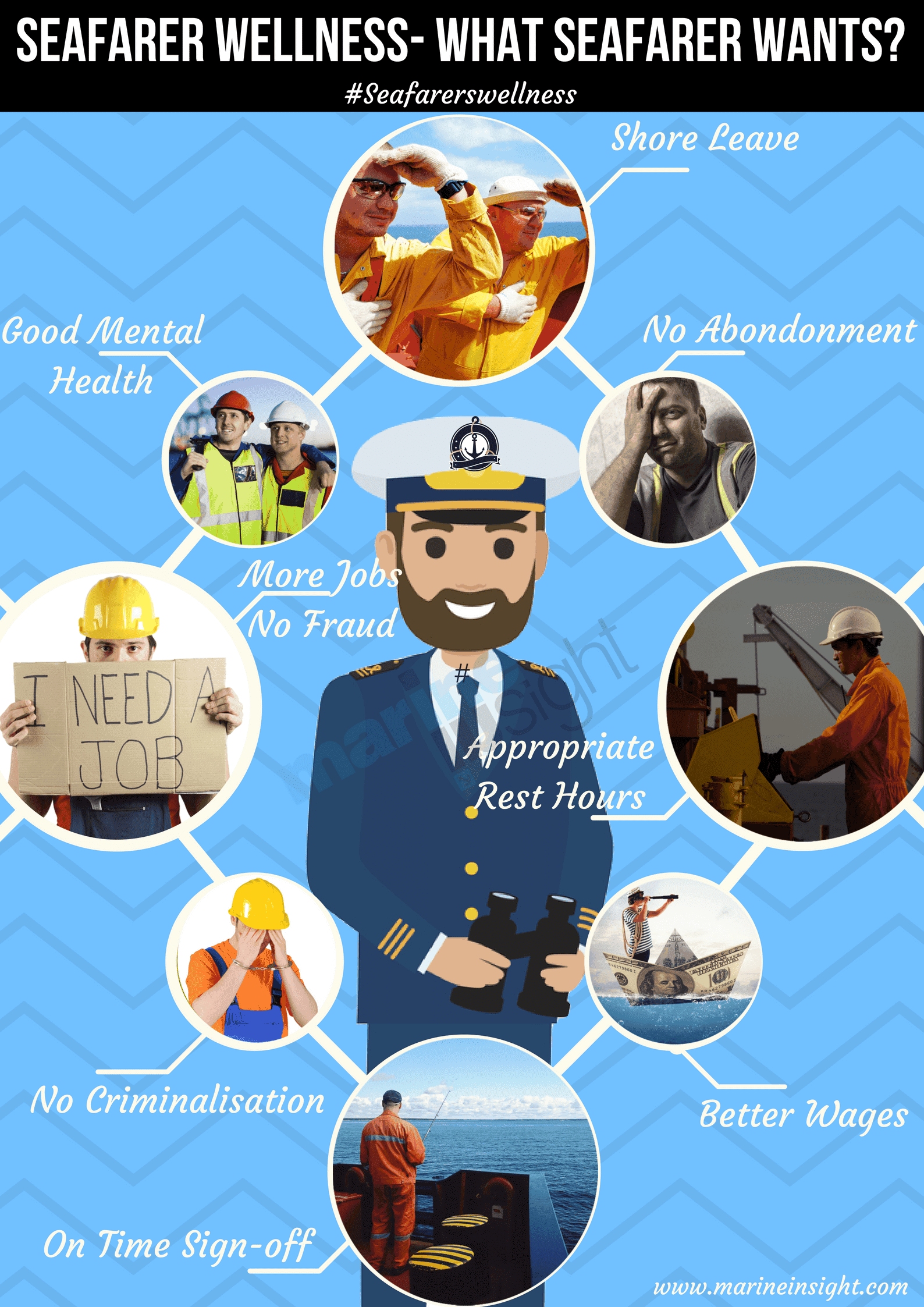
1. Increasing Shore Leave: Shore leaves remain to be one of the best and only forms of relaxation available to the seafarer. One the biggest perks of the job are the travel involved, an aspect that is gradually dwindling owing to quicker turnaround times. There’s also the prospect of not being allowed shore leave in a certain country – something that is rather disappointing especially after a long voyage. Many a time there is also a case wherein shore leave is cancelled by the Master for a specific individual from a disciplinary standpoint or even for the whole vessel due to operational requirements.
While the cause for cancellation is mostly legitimized by citing rules and regulations, one cannot take away the fact that the situation wherein one isn’t able to go out and visit the city is extremely saddening. From a personal viewpoint, shore leave should be mandatory unless there is a security concern. There are many other ways to tackle a disciplinary action or an operational requirement, and cancelling shore leave shouldn’t be one of them.
Related Read: 7 Ways to Make the Best of Your Shore Leave
After constant hard work and days on end out at sea, the least that a seafarer yearns for is a good meal, some sightseeing and a change of surroundings; taking that away from them is as harsh as it can get. A lot of the above depends on the Master and all once can expect is the judicious use of that authority especially when the overall well being of the other ranks depends a great deal on the Master’s approach.
2. Preventing Abandonment Of Seafarers: There have been a few cases of abandonment of seafarers in the recent past that have been widely highlighted. Cases where the vessel, under limited resources, have been abandoned by the owner for the lack of funds in payment of dues to certain entities. Being out at sea (or even in port for that matter) is hectic enough, why is this not under the purview of legislation which forbids such occurrences or safeguards the seafarers as a contingent to such occurrences happening. Would the same happen on shore with the controlling person going scot free? The organizations looking out for the welfare of seafarers have ensured that the seafarers are taken care of in these situations but they cannot become the monitoring and correctional authority in these matters. There needs to be an overhaul in the perception of seafarers being an essential force in the supply chain and not just a hard-working set of people that can be left to fend for themselves.
Related Read: 10 Important Organizations Seafarers Can Contact For Help
3. Steps To Improve Mental Health: It’s high time the industry and the concerned authorities take steps to enhance the mental health of seafarers. Shore-based offices have the HR departments to approach in case of an anomaly, counsellors and other mental health professionals for a frank session, lawyers to safeguard their rights – what do seafarers have? As stated before in this article, it’s not a matter of comparison but one of concern that the mental health of those onboard is taken for granted. How hard would it be for a shipping company to have a helpline or to employ a counsellor onboard in order for the seafarers to have someone to open up to and not let the pain fester within?
Related Read: 5 Behavioural Techniques For Seafarers to Reduce Stress at Sea
4. Improving Global Wages Of Seafarers: Seafarers are the most honest people with little to no scope for stacking up on illegal cash. While it is understood that the remuneration is higher than that on shore at the entry level, a seafarer’s income is clean and earned through a great degree of hard work. That applying, it is unfortunate to come across cases wherein wages withheld, deducted or even delayed for that matter. Again, at a shore establishment, it is rare to see such an occurrence. There is also the aspect of wages have remained the same over the years and in some instances, even have decreased. A sea-based job does, while tax-free and USD based (For some countries), seafarers do not have other company supported benefits such as a PF and other allowances, and the wholesome income has to be allocated wisely for the future. A revision in the pay scale, as well as timely deliverance, is hardly much to ask for.
5. Taking Steps To Prevent Criminalization: Commercial pressures have rendered the aspect of vessel operations tight and even more demanding than ever with the ever mounting paperwork and adherence to legislation. While the company may not specifically ask seafarers to take shortcuts, it might sometimes the only way to tend to the various demands of the voyage. A slip up with regard to the marine environment, while unacceptable, can also have drastic consequences with the repercussions falling directly on the team onboard. This issue is one that clearly needs dialogue at the highest level so as to make elementary changes in the system. No person would be directly motivated to cause harm to the marine environment. Considering the MARPOL Annex V (Garbage), only for the purpose of explanation – to what extent can waste generated onboard be stored onboard. Yes, there is a facility in place on all ships but the problem arises on very long voyages where the generation far out does the storage capacity, with the additional headache of not having a shore reception facility. What then?
Related Read: 9 Types of Maritime Crimes
6. On-Time Repatriation: Every single seafarer can relate to the fact that they are most elated on the day of sign off after the completion of the contract; months of endless hard work finally comes to an end with the friends and families eagerly waiting for the individual’s return. Often, plans are made and more importantly, minds are made up about signing off only to know that it can only take place at the ‘next convenient port’. Heartbreaking as it is, it is only possible to request the company to make arrangements as soon as they can for there is hardly much one can do being out at sea or in a totally different country. Sometimes, wages are deducted for not adhering to the contract, which, albeit legitimate, causing a great deal of distress. As all seafarers will agree, only they know the work that goes into earning that dough! One can only hope that timely repatriation won’t just be the practice at the top firms but across the spectrum.
Related Read: 10 Things Seafarers Must Remember Before Signing Off From Ship
7. More Accessible Support From Organizations: There are several organizations which work for the betterment of the seafarers. However, most of the seafarers do not know how to contact them when in need. While some do tend to contact them in an emergency, but there is a common complain that most of them don’t receive any reply. No doubt, some organisations are leaving no stone unturned to assist seafarers, for e.g. ISWAN’s initiative to address the mental health of seafarers is commendable, now available in four additional languages and two infographics produced using extracts from the guide. But a lot still needs to be done. Who knows – maybe the day is not far where we have mental health professionals onboard or on demand to help seafarers get through their tough times. Read more here.
8. Proper And Stringent Implementation Of MLC Convention: The Maritime Labour Convention 2006 (MLC) is an international agreement of the International Labour Organisation (‘ILO’) which sets out seafarers’ rights to decent conditions of work. It is sometimes called the seafarers’ Bill of Rights. The biggest problem with the Maritime Labour Convention of 2006 (MLC) – as is the biggest problem with bureaucratic regulation in general – is that it’s so long and boring. Also, compliance with it is often only on paper with little to no emphasis on the actual situation onboard. Everyone will admit to the fact that the ‘work and rest hours’ form is hardly adhered to, for the simple reason that the job is sometimes way too demanding to be set into a daily schedule. The purpose behind the MLC is excellent, driven towards the welfare of seafarers but it is a long way to go before having absolute compliance to the MLC.

9. Better Internet Facility: A recent survey revealed that 95% of seafarers view connectivity as having a positive effect on onboard safety, whereas 92% of seafarers reported that Internet access strongly influences their decision on where to work. Internet access at sea has become an important aspect for seafarers when to comes to emotional well-being as it makes communicating with family and friends easy. It also helps seafarers to stay aware of the happenings in the world, preventing total disconnect. Though there are both pros and cons of internet on board ships, it is something seafarers definitely want at sea.
10. Keeping A Check On Fraud Agents and Corruption: With increasing imbalance between supply and demand of seafarers leading to insufficient jobs in the market, there is a growing dissatisfaction among young professionals. This dearth of jobs has created an opportunity for fraudulent agents who are duping fresh graduates with fake promises. It is imperative for government and maritime organisations to prevent such malpractices in order to protect the hard-earned money of seafarers and also to avoid tarnishing the industry image.
Related Read: 6 Recruitment Scams Every Mariner Should be Aware Of
At Marine Insight, we want our readers to remain connected to the industry and initiate dialogue on the issues. The purpose of bringing up such issues is not to solely criticise the existing conditions but to make the prospect of working at sea an attractive and valuable proposition for the future, bring about positive changes in the seafarer’s life, and in general keep the discussions running and engaging. The purpose of having a dedicated day for seafarers is to ensure that the due recognition and attention is directed towards the betterment of the industry.
For us, #GoodDayAtSea is one where we have had a professionally challenging and fulfilling day in an amiable work environment that fuels my personal growth as well as add to the operational betterment of the vessel.
We at Marine Insight wish all the seafarers a very happy seafarers day. May you have fair winds and calm seas.
You may also like to read –
- 10 Simple Things That Make Seafarers Happy On Board Ships
- Criminalization Of Seafarers Amid COVID-19: Seafarers, Are You Aware Of The Rights Available?
- 10 Occasions When Seafarers Are Happy On Board Ship
Disclaimer :
The information contained in this website is for general information purposes only. While we endeavour to keep the information up to date and correct, we make no representations or warranties of any kind, express or implied, about the completeness, accuracy, reliability, suitability or availability with respect to the website or the information, products, services, or related graphics contained on the website for any purpose. Any reliance you place on such information is therefore strictly at your own risk.
In no event will we be liable for any loss or damage including without limitation, indirect or consequential loss or damage, or any loss or damage whatsoever arising from loss of data or profits arising out of, or in connection with, the use of this website.
Do you have info to share with us ? Suggest a correction
Disclaimer :
The information contained in this website is for general information purposes only. While we endeavour to keep the information up to date and correct, we make no representations or warranties of any kind, express or implied, about the completeness, accuracy, reliability, suitability or availability with respect to the website or the information, products, services, or related graphics contained on the website for any purpose. Any reliance you place on such information is therefore strictly at your own risk.
In no event will we be liable for any loss or damage including without limitation, indirect or consequential loss or damage, or any loss or damage whatsoever arising from loss of data or profits arising out of, or in connection with, the use of this website.

About Author
Shilavadra Bhattacharjee is a shipbroker with a background in commercial operations after having sailed onboard as a Third Officer. His interests primarily lie in the energy sector, books and travelling.
Related Posts
Subscribe To Our Newsletters
By subscribing, you agree to our Privacy Policy and may receive occasional deal communications; you can unsubscribe anytime.






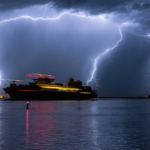

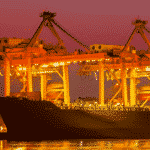
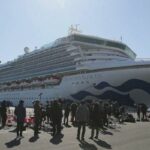

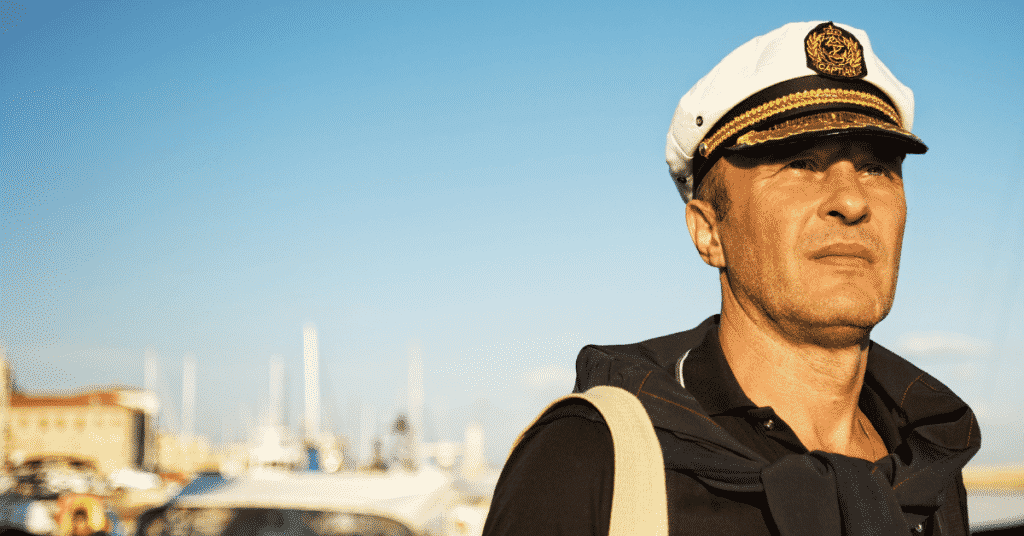
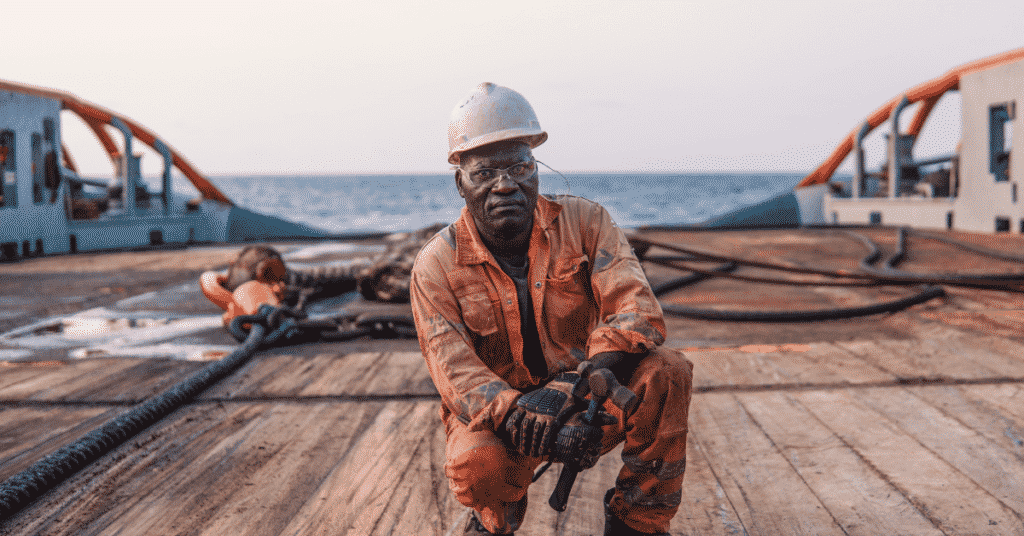
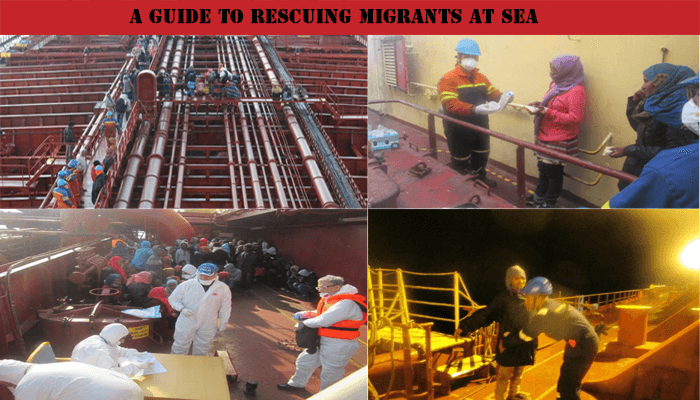


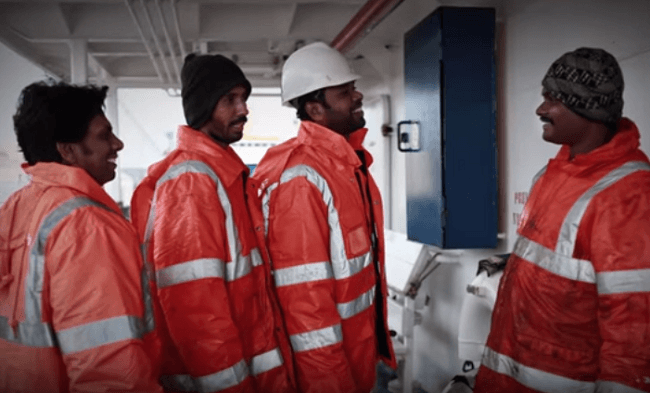
The root cause lies at the door of flag state. It issues minimum safe Manning certificates on the basis of imaginary number of 12/14. This many persons can never run and maintain a vessel, which is calling ports, loading and unloading cargo, keeping navigation and machinery watch, doing breakdown and preventive maintenance. Then it has to cope with rules of pilottage with stringent Watch Levels, supervision by certified officer of frequent pilot exchanges at the pilot ladder, anchor stations for safety requiring presence of certified officer. There is no way that onboard management can comply with work/rest hours. ILO knows it, port state knows it, charterers know it,owners know it, yet they want the master n his team to make the record look compliant. We need no less than 60% extra officers and able bodied persons on board than the numbers presently alloted on MSM certificate.
Garbage MGT is just about impossible during long voyage n anchorage. Fresh water scarcity is a real issue during long anchorage n when on long voyage with faulty evaporator.
Arrival departure port formalities are another issue where port authorities come at odd hours with odd gap and expect crew to line up in front of them for identification by quarantine, immigration , customs etc. Also the Labour inspectors n port state n marine police. All this plays havoc with watch keepers rest hours compliance.
Owners /charterers have budgetary issues. Buck stops at onboard management!